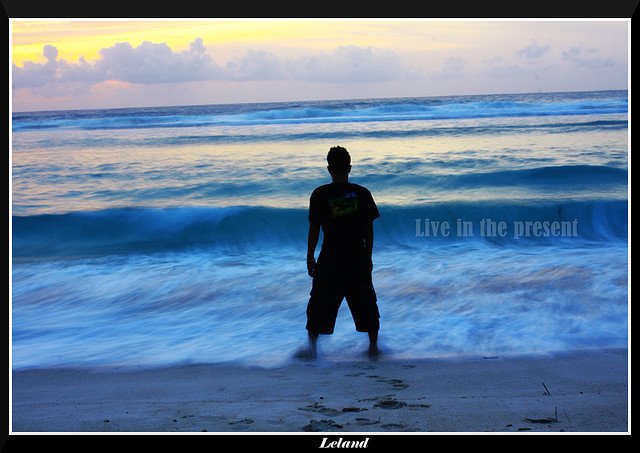Why ‘Living in the Moment’ is Impossible
New research finds that “living in the moment” is probably impossible thanks to the hard-wired ways our minds process thinking and decision-making.
“Just live in the moment!” say people who are selling something, probably. But new research finds that this commandment is probably impossible thanks to the hard-wired ways our minds process thinking and decision-making.
The brain is tasked with keeping track of decisions and the outcomes they produce, the researchers explain in a release describing their work. As we move through life, in any given moment we are constantly keeping past decisions in mind and weighing potential future ones.
To show that our inner lives are more than just a collection of the here-and-now, and to pinpoint where meta-cognition, or “thinking about thinking” occurs, the researchers performed a series of tests.
They presented their subjects with a visual decision-making task that involved random flashing lights and one dominant light on a cardboard square. They asked the subject to try and guess where the main light appeared and then remember where it occurred after the experiment. The scientists found that brain activity linking decisions to the subjects’ guesses resided exclusively in a complex area of the brain linked with the motivational aspects of behavior. In other words, people wanted to guess correctly, and to do so they had to compare what they knew of the present round of the game compared to the past rounds already filed in their memories. Rather than just randomly guessing where the light would appear, they relied upon life experiences to inform their decisions. Even if we’re not consciously aware of it, we’re always drawing upon past experience to inform our present actions.
The researchers summarized:
“Why aren’t our thoughts independent of each other? Why don’t we just live in the moment? For a healthy person, it’s impossible to live in the moment. It’s a nice thing to say in terms of seizing the day and enjoying life, but our inner lives and experiences are much richer than that.”
/https://tf-cmsv2-smithsonianmag-media.s3.amazonaws.com/accounts/headshot/Rachel-Nuwer-240.jpg)

/https://tf-cmsv2-smithsonianmag-media.s3.amazonaws.com/accounts/headshot/Rachel-Nuwer-240.jpg)